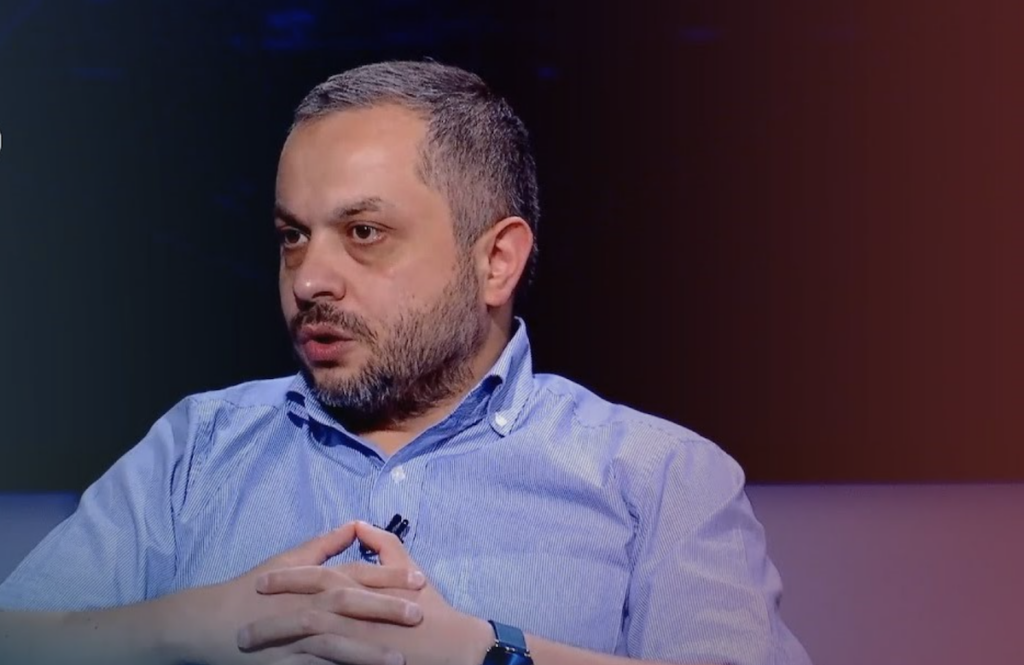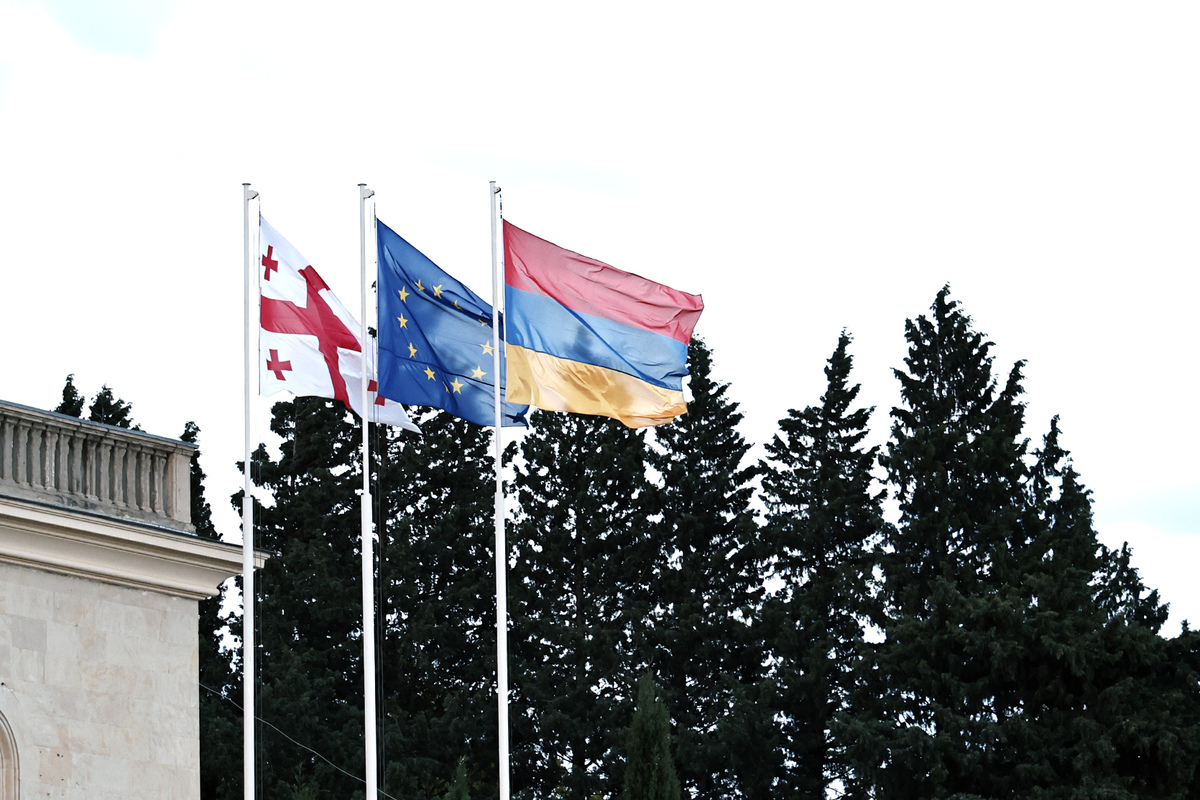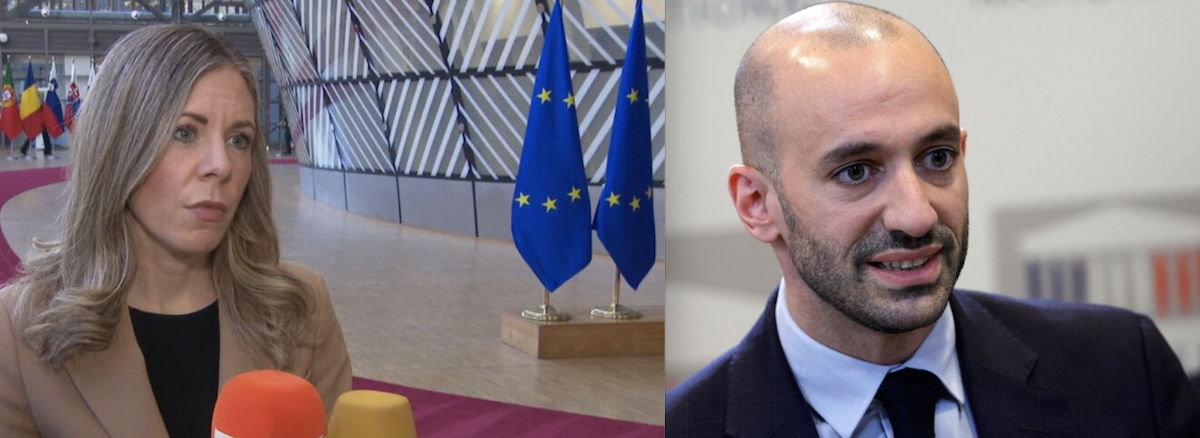Opinion: 'Georgian Dream moves closer to Russia, and more shameful episodes may follow'
Georgian Dream moves toward Russia
Georgian historian Beka Kobakhidze comments on a series of new laws introduced by Georgian Dream, which he argues were adopted despite bringing no benefit to the ruling elite — and even damaging its standing among its own supporters.
Kobakhidze believes this is happening because Georgia’s leaders feel compelled to follow recommendations from the Kremlin in order to remain “compatible with Russia.”
“It’s similar to how the European Union presented Georgia, as an EU candidate, with a list of conditions that had to be met for the integration process to continue. Only now this ‘integration’ is moving in the direction of Russia,” Kobakhidze says.
“For Moscow to regard Georgia’s ruling regime as a ‘reliable partner’, society will have to endure many more shameful episodes,” the analyst warns.
The most recent legislative initiatives put forward by Georgian Dream include abolishing the administration of the “South Ossetia” administrative unit — created on the territory of the former South Ossetian Autonomous Region — and shutting down the anti-corruption bureau.
Another proposal has sparked heated debate and public anger: a plan to ban Georgian citizens from voting while abroad. Under the amendment, they would have to return to the country in order to cast their ballots.
- New Georgian government initiatives: abolishing several agencies and banning voting from abroad
- Opinion: ‘Emigrants are punished for not voting for Georgian Dream’
- Opinion: ‘How will Georgian Dream supporters accept their wives, mothers and sisters losing right to vote?’

Historian Beka Kobakhidze:
“Why is Georgian Dream stripping Georgian emigrants of their right to vote?
It’s easy to fall into the trap of giving a simple answer: because their views are shaped abroad, because their votes can’t be manipulated, and so on.
Let me start with a short digression. Georgia is a very small country, but it sits between major powers. It cannot become isolated or exist on its own.
Let’s recall the period of King Heraclius II (who ruled in the 18th century and is known for the 1784 Treaty of Georgievsk, which placed the Kingdom of Eastern Georgia under the protection of the Russian Empire — JAMnews).
Heraclius II was initially aligned with Persia under Nader Shah. When Persia weakened, he turned toward Russia. Shortly afterwards, Georgia was crushed by the Russian Empire.
The first Democratic Republic of Georgia (1918–1921) tried to direct the country toward Europe. It was immediately suppressed by Soviet Russia.
After independence was restored, in 1995 Georgia again tried to rebuild its ties with Europe. Reforms were aimed at making the country compatible with the European space.
Europe set conditions — mostly concerning democracy, good governance and human rights. Georgian governments since then tried, to varying degrees, to lay the foundations for this. Georgia became the most democratic country in the region.
This continued until Bidzina Ivanishvili (the oligarch founder and honorary chairman of Georgian Dream) came to power in 2012 and shifted the country’s foreign policy course toward Russia.
What is happening now resembles the way the European Union, after granting Georgia candidate status, presented it with a list of conditions that had to be met for the integration process to move forward. Only this time, the alignment is with Russia — and the ruling regime must fulfil Moscow’s conditions in order to be recognised there as a ‘reliable partner’.”
Examples of actions that Georgian Dream did not need for its own political interests but carried out in line with directives from the Kremlin.
Example 1.
Let’s start with the most recent case — the plan to ban Georgian citizens from voting abroad.
In the 2024 parliamentary elections, despite strong mobilisation efforts targeting the Georgian diaspora, only about 35,000 emigrants voted in other countries.
Of those, the real opposition received around 25,000 votes.
Is this number an electoral threat to Georgian Dream? No — inside Georgia, the ruling party has far more resources for vote-buying, intimidation, propaganda, and manipulation.
This decision therefore damages Georgian Dream’s reputation among its own supporters far more than it helps the party win elections.
So why are they doing it, especially now, three years away from the next elections?
My historical experience and work with Russian archival documents suggest that Russian handlers do not develop separate policies for Georgia, Ukraine, or Lithuania.
In the Kremlin, there is a single policy for all the “inorodtsy” — a term Russians historically used for the small nations within their empire.
Time will pass — I may not be around to see it — but one day the archives on current events will be opened. I have no doubt that my assumption will be confirmed.
Recently, Moscow suffered a defeat in Moldova during a referendum asking whether the country should pursue EU membership.
Pro-European forces won largely thanks to the active participation of Moldovan citizens living abroad.
Russian handlers were angered and drafted a unified political manual: emigrants must be excluded from voting. This directive then reached Tbilisi, and Georgian Dream is implementing it.
Nobody explained to the Russians that, unlike Moldova, Georgia has very few polling stations abroad, and emigrants cannot significantly influence the outcome of elections.
This is especially true in a country where elections are not genuinely competitive and opposition parties are effectively banned.
There are also clear signs that Georgian Dream now plans to hold a “referendum on Georgia’s neutrality.”
The proposed referendum could, in theory, attempt to annul Article 78 of the Georgian Constitution, which obliges the country’s constitutional bodies, within their powers, to take all measures to ensure Georgia’s full integration into the European Union and the North Atlantic Treaty Organization.
This is the approach of the ruling party. Already in Georgia, some minor political figures — often seen as “crazy” — are talking about it, but real politics will eventually take over.
These individuals are shaping the information environment and have been very active in recent months promoting the idea of “neutrality,” with backing from pro-government propaganda channels.
It appears likely that a referendum will be held, similar to the one recently conducted in Moldova. Early parliamentary elections may also follow, and both would likely be initiated under Russia’s guidance.
Example 2.
Let’s recall the apologies to the Ossetians for the August 2008 war, delivered by Bidzina Ivanishvili in Gori in September 2024. Was this really needed by Georgian Dream, especially right before elections? Why accuse Georgia of starting that war, and what did that give Georgian Dream?
Absolutely nothing. Except one thing: it fulfilled yet another item in Russia’s “recommendations” for achieving “compatibility” with Moscow.
Example 3
In 2022, a Russian Foreign Ministry report labelled the Georgian “Laboratory for the Study of the Soviet Past” as a “hostile organisation.” Almost immediately, the Georgian authorities closed the Soviet archives.
Neither the “Sovlab” organisation nor the archives themselves posed any problems for the Georgian Dream government. In fact, I am confident that neither Ivanishvili nor Kobakhidze (the prime minister from Georgian Dream) even knew these archives or the organisation existed.
But Moscow had just closed “Memorial” — an organisation similar to Georgia’s Sovlab — and demanded that Georgia follow the same “compatibility with Russia” recommendation.
Example 4
In 2021, Georgia marked 100 years since the Soviet occupation. Georgian Dream, predictably, did not commemorate this day — nor the 100th anniversary of the 1924 uprising.
In a Facebook statement at the time, Prime Minister Garibashvili claimed that on 16 February 1921 the Red Army invaded Georgia, but Russia was not mentioned.
Archival documents, however, confirm the historical facts. On 12 February 1921, in the Lori region, a staged uprising began, with the Red Army involved from the very first minutes.
Official Soviet and modern Russian accounts claim that workers rose up on 12 February, and the Red Army came to their aid on 16 February.
This false version does not appear in any Georgian textbooks or in any book published in Georgia after 1990. No Georgian historian has ever written this.
So where did the 16 February date in Garibashvili’s statement come from, if not supplied from Moscow?
Georgian society still faces many shameful episodes as Georgian Dream works to achieve “compatibility with Russia.”
Новости в ГруGeorgian Dream moves toward Russia




















